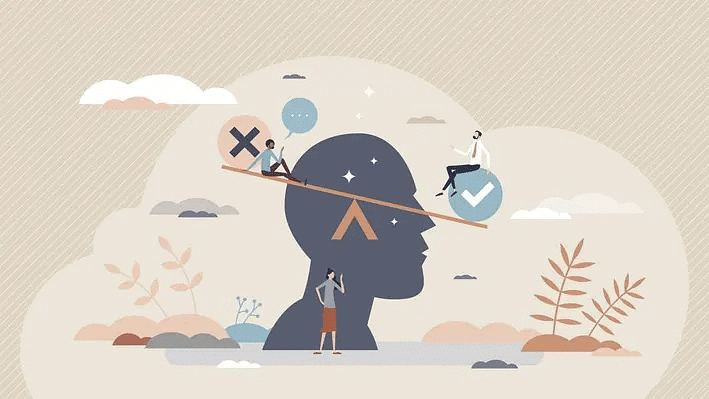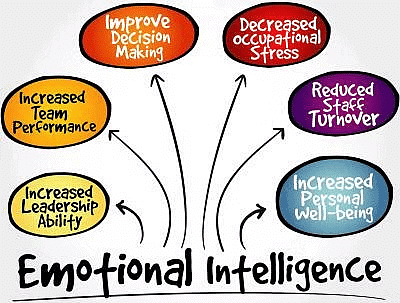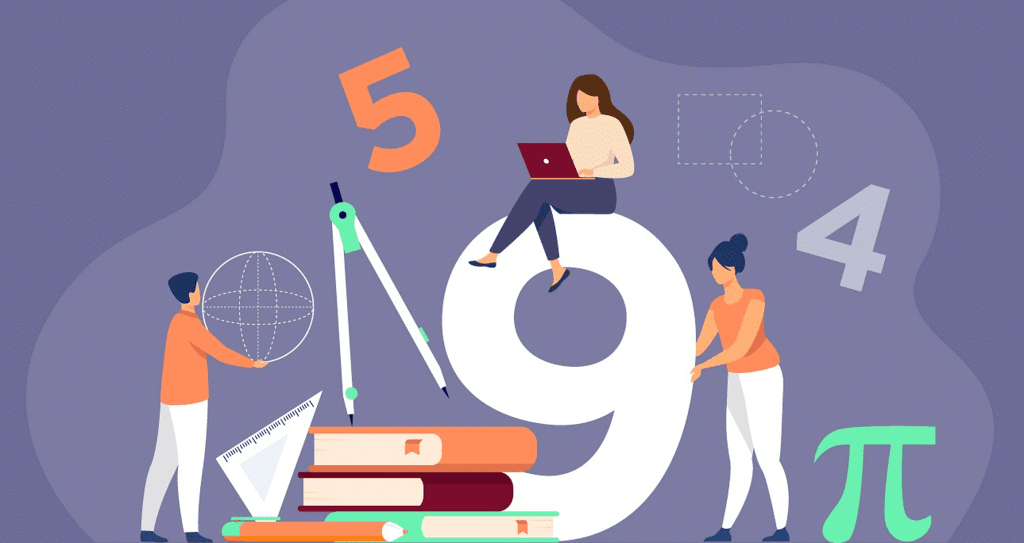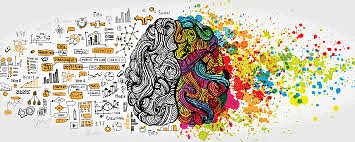(Part - 2) - Variations in Psychological Attributes Class 12 Psychology
| Table of contents |

|
| Culture and Intelligence |

|
| Emotional Intelligence |

|
| Special Abilities |

|
| Creativity |

|
Culture and Intelligence
- Culture encompasses customs, beliefs, attitudes, and artistic and literary achievements of a community.
 It is in this cultural context that intelligence develops. Russian psychologist Vygotsky has argued that culture provides a social framework within which individuals live, learn and interpret the world. For instance, in technologically underdeveloped societies, social and emotional competencies are highly valued, whereas in technologically advanced societies, success based on reasoning and judgement is seen as intelligence.
It is in this cultural context that intelligence develops. Russian psychologist Vygotsky has argued that culture provides a social framework within which individuals live, learn and interpret the world. For instance, in technologically underdeveloped societies, social and emotional competencies are highly valued, whereas in technologically advanced societies, success based on reasoning and judgement is seen as intelligence. - Vygotsky also believed that cultures, like individuals, evolve and change over time, and determine the ultimate outcome of successful intellectual development. While basic mental functions such as crying, paying attention to mother's voice, responding to smells, walking, and running are universal, higher mental functions like problem-solving and critical thinking are largely shaped by culture.
- Sternberg's concept of contextual or practical intelligence suggests that intelligence is a product of culture.
Technological Intelligence
- In societies that are technologically advanced, intelligence is considered to be reflected by personal achievement based on reasoning and judgement, which reflects an individualistic orientation.

- Child-rearing practices in such societies are geared towards developing skills like generalization, abstraction, speed, and mental manipulation.
- People in these societies tend to be proficient in skills such as attention, observation, analysis, performance, speed, and achievement orientation.
Intelligence in Indian Tradition
In contrast to the Western perspective that places a strong emphasis on cognitive abilities, the Indian tradition recognizes the following competencies as dimensions of intelligence:
- Cognitive capacity: This includes sensitivity to context, the ability to understand and discriminate, problem-solving skills, and effective communication.
- Social competence: This refers to a person's respect for the social order, their commitment to elders, the young, and the needy, and their consideration for others' perspectives.
- Emotional competence: This encompasses self-regulation, the ability to monitor one's emotions, honesty, politeness, good conduct, and self-evaluation.
- Entrepreneurial competence: This involves qualities such as commitment, persistence, patience, hard work, vigilance, and a goal-directed approach.
Emotional Intelligence
- The concept of emotional intelligence expands the definition of intelligence by including emotions as a part of it. This includes the ability to perceive, express, and regulate emotions.

- Emotional intelligence is considered the feeling aspect of intelligence, and academic success alone is not sufficient for success in life. Even individuals with exceptional academic records may struggle with managing their personal lives, which psychologists attribute to a lack of emotional intelligence.
- This concept is measured by EQ, which was first defined by Salovey and Mayer as the ability to monitor one's own and others' emotions, discriminate between them, and use them to guide one's thinking and actions.
Characteristics of the people with high EQ:
- Be aware of your own feelings and emotions, and be attuned to them.
- Practice being observant of other people's emotions by paying attention to their body language, voice, tone, and facial expressions.
- Incorporate both emotions and thoughts when you approach problem-solving and decision-making.
- Recognize the characteristics and strength of emotions, and appreciate their significant impact on our lives.
- Develop the ability to regulate your emotions and feelings when interacting with others in order to create a peaceful and harmonious environment.
Special Abilities
Aptitude: Nature and Measurement
- The term "Aptitude" refers to an individual's mental capacity or ability in a particular area or field. It also denotes the ability to acquire specific knowledge and skills after receiving training.
- Even though people may have similar intelligence levels or IQ, their ability to acquire certain skills can differ significantly. This means that individuals can possess aptitudes for different fields, despite having similar intelligence measures.
- It's important to distinguish between aptitude and interest - aptitude refers to the potential to perform any activity, whereas interest refers to the preference for performing a specific activity. To excel in any field, an individual needs to possess both aptitude and interest.
Measuring Aptitude
There are different types of aptitude tests that can be classified into two categories:
- Independent aptitude tests: These tests are designed to assess a person's abilities in a specific area, such as mechanical, clerical, or numerical skills. They are tailored to evaluate aptitude for specialized fields.
- Multiple aptitude tests: These tests come in the form of test batteries that evaluate general aptitude. Examples include the Differential Aptitude Test (DAT), General Aptitude Test Battery (GATB), and Armed Services Vocational Aptitude Battery (ASVAB).

The DAT is commonly used in educational settings and consists of eight specialized subtests: verbal, numerical, abstract, clerical speed and accuracy, mechanical, space, spelling, and language tests. These are considered common tests that are administered to evaluate an individual's aptitude in these specific areas.
Characteristics of Emotionally Intelligent Persons
- Perceive and be sensitive to your feelings and emotions.
- Perceive and be sensitive to various types of emotions in others by noting their body language, voice and tone, and facial expressions.
- Relate your emotions to your thoughts so that you take them into account while solving problems and making decisions.
- Understand the powerful influence of the nature and intensity of your emotions.
- Control and regulate your emotions and their expressions while dealing with self and others to achieve harmony and peace.
Creativity
Variations in Psychological Attributes
In the previous sections, it was discussed how people differ in characteristics such as intelligence, aptitude, and personality.
Creativity and its Expressions
Individuals exhibit varying levels of creativity and express it in diverse ways. Some individuals display high levels of creativity, while others may not be as creative. Creativity manifests in various forms such as writing, dance, music, poetry, and science.
Examples of Creative Expression
- A novel solution to a problem
- An invention
- Composition of a poem
- Creation of a painting
- Development of a new chemical process
- Innovation in law
- Breakthrough in preventing a disease
Despite the diverse manifestations, a common thread among these is the creation of something new and unique. Creativity is often associated with renowned figures like Tagore, Einstein, C.V. Raman, and Ramanujan, who have excelled in their respective fields.
- Einstein's theory of relativity exemplifies the pinnacle of creativity, involving the introduction of entirely new ideas, facts, theories, or products.
- Another form of creativity involves working on existing concepts through modifications, offering fresh perspectives, or exploring new applications.
- Studies indicate that children typically begin nurturing their imagination during early childhood, primarily expressing creativity through physical activities and non-verbal means.
- As language and intellectual capabilities mature and knowledge accumulates, creativity is also manifested through verbal forms.
Debate on Creativity and Intelligence:
The debate surrounding creativity and intelligence focuses on the connection between the two. Let's consider two students in a classroom as an example:
- Student Example - Sunita:
Sunita is seen as an outstanding student by her teachers. She excels in timely completion of tasks, scoring top grades, attentive listening, quick understanding, and precise reproduction. However, she seldom generates original ideas. - Student Example - Rita:
Rita, on the other hand, is an average student who hasn't consistently achieved high grades. She enjoys self-directed learning, innovates new methods to assist her mother at home, and devises fresh approaches to tasks and assignments.
- Intelligence vs. Creativity:
Traditionally, intelligence is linked with quick learning and accurate reproduction. Conversely, creativity involves inventing novel ways of learning and doing tasks. While intelligence and creativity can coexist, they are not always synonymous.
- Research Insights:
Studies have demonstrated that high IQ does not guarantee creativity, and creative ideas can emerge from individuals with varying intelligence levels. Notably, highly intelligent individuals may lack significant creative abilities.
- Relationship between Creativity and Intelligence:
Creativity necessitates a baseline level of cognitive abilities such as knowledge acquisition, comprehension, retention, and retrieval. For instance, writers require language proficiency, artists need to understand the impact of their techniques, and scientists must engage in logical reasoning.
- Concluding Thoughts:
It can be inferred that creativity manifests in diverse forms, blending intellectual attributes with creativity-specific traits. Some individuals exhibit more intellectual prowess, while others emphasize creativity-associated qualities.
- A key aspect of most creativity tests is their open-ended nature. They allow individuals to generate diverse responses based on their unique experiences. This flexibility enables them to explore various avenues of thought without predefined solutions, fostering the use of imagination in original ways.
- Creativity assessments primarily involve divergent thinking, evaluating skills like generating a range of ideas that deviate from the norm, perceiving novel connections between seemingly unrelated concepts, speculating on causes and effects, and reframing situations in new contexts.
FAQs on (Part - 2) - Variations in Psychological Attributes Class 12 Psychology
| 1. What is the relationship between culture and intelligence? |  |
| 2. How does emotional intelligence impact overall intelligence? |  |
| 3. Are special abilities considered a form of intelligence? |  |
| 4. How does creativity play a role in intelligence? |  |
| 5. Are there variations in psychological attributes across different individuals and cultures? |  |
















